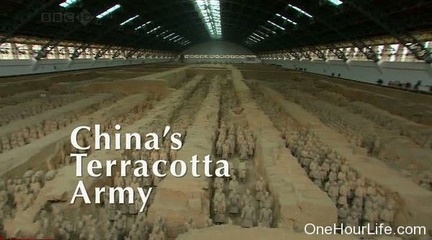China Characteristics - Guanxi tire characteristics
"Guanxi" is the most overused term in the China business environment. The term is central to doing business in China because the concept and practice of Guanxi is so central to the Chinese context. As the Chinese do consider Guanxi important, so the foreigners must learn, adapt and understand.
The logical place to start is with a definition. Guanxi translated means 'relationships’. This understanding, in as far as it goes, is common to all humanity and is not cultural specific. In China, Guanxi is a system of interpersonal relationships that has long historical and cultural roots. Guanxi is understood and utilized by virtually every Chinese person alive today in greater or lesser measure. The basic underpinnings of the Guanxi system are the twin understandings that, one, all things are relative and, two, that people are the deciders of all things. This worldview, as opposed to the concept of the rule of law, is a fundamental distinction between how Chinese and Westerners perceive the world and the appropriate starting place to understand Guanxi. China has never been a nation of laws. All of the Western philosophical understandings that define the relationships between individuals and the individual and the society are not present in Chinese society except in the form of shallow, recent transplants. The deeper current still predominates and perhaps always will.
Guanxi is used to accomplish the specific ends or objectives of the people involved. The relationships that are used can range from familiar family-based relationships to familiar commercial-based relationships. We say "familiar" in the context that a Westerner might understand these. It is the immense sophistication and multifaceted complexity of Guanxi that foreigners find difficult to comprehend. This complexity has evolved over the centuries because China is, and always has been, an intensely political society. This has not changed under Communist rule. In fact, it can be argued that Communist rule has even intensified the political nature of base Chinese culture.
Practically speaking, imagine a giant three-dimensional web that rolls across time and life circumstances. Each thread in this web is one Guanxi relationship. Some of these threads are thicker and more central, some are mere filaments at the edges. While there will be substantial interconnection, there are also major, even the majority of the sections, that interconnect only through the hub — the individual. To the extent that an individual can maximize the number of these thicker threads, reduce non-hub central interconnections and expand the overall size and reach of the entire web, value and utility are gained.
Now, each individual has such a web. Really, virtually every Chinese person alive today is an active participant in this system — it is cultural in nature. And there are mutually recognized ways to "trade" on these webs, or to utilize each other’s webs for mutual benefit.
Thus, every time two Chinese people meet for the first time (provided there is a substantial interaction) at least one significant part of the conversation will be centered around the exploration, measuring and evaluation of the mutual Guanxi implications. This is a fundamentally practical exercise that allows each to place themselves and the other into the wider context. Higher level operators of Guanxi in China can, and do, build their entire careers around their ability to organize and utilize their Guanxi web.
Guanxi operates as essentially a private favor exchange. If I can organize a chain of value exchange among my web threads that results in getting something that I want, then I can execute a Guanxi transaction (or chain transaction). The system is lubricated by the concept of a Guanxi Debt. I can utilize the system for short-term needs certainly, and that is a very common aspect of the system. But I can also incur or accrue Guanxi that (if managed wisely) can be utilized for larger purposes at a later time. Naturally, such favors often have financial components. Even the outright sale of Guanxi is common. A key aspect to understanding this is that Guanxi is like your brain, or your muscles. It must be used in order to grow strong or stay sharp. Since everybody is operating within the same system, if I develop some particularly important Guanxi thread, but then don’t use it, I will lose it. This is because the Guanxi thread is established by mutual agreement. The opposite party has also made his or her calculations and essentially agreed to have this Guanxi. They are obviously then counting on it deriving some benefit for them. If this interaction is not forthcoming, then the thread will weaken until finally is no longer exists.
It also follows then that I must clearly understand the essential nature of every relational thread in order to use them effectively and maintain them. Since every relational thread is a person in a complex environment, this task (requirement) is enormously complicated and taxing. Now we have illustrated, very briefly and inadequately, the truly political nature of Guanxi and Chinese culture.
Implication of Guanxi for Foreigners
OK, that will have to do for now in the definitional sense. So what does it all mean for foreigners doing business in China? One of the biggest problems is that foreigners often operate in ways that are incompatible with the Guanxi system. Likewise, Chinese often mystify their foreign counterparts with their behavior. Much of this, but not all, can be traced to the Guanxi system. It is not necessary (usually) that foreigners be able to play the Guanxi game. In fact it is usually a mistake to even try. But understanding its nature can help in many ways to smooth events and interactions.
To this end we illustrate below some practical (or not so…) examples of ways this system involves itself in the life and process of the foreigner (and thus ultimately the foreign business) working in China. Hopefully, through these examples, a fuller measure of the true nature of Guanxi and its implications can be gained.
You are part of Others’ Webs:
This is the first essential lesson. As a foreigner or a foreign business in China, you have already entered into the Guanxi underworld. You are already part of all the calculations that all of the Chinese people around you make with regard to their web. Remember this as you interact in the Chinese context. It is important to understand the nature of the expectations that those around have of you in the Guanxi context. By meeting or denying these expectations, you will change the nature of the relationship. But be cautious, read on.
Guanxi is essentially Selfish:
It is not ‘evil’, or even ‘bad’ — but it is selfish. All Guanxi interactions take place with the understanding that the individual’s Guanxi Web’s total net worth is increased by some measure. Yes, friends "help" friends, and family "helps" family, but these actions incur Guanxi debts. Only occasionally are Guanxi transactions undertaken that incur negative net Web worth — and these are almost always special circumstances involving family members or special old friends.
Manage the Guanxi Scales:
The Guanxi Debt system has been alluded to numerous times above. Among some of the more experienced foreigners in China, we call this the Guanxi scales. The idea that one can owe and be owed Guanxi is important. There are a couple of important things to be said in this respect. The first is that an effort should be made not to go into Guanxi debt very heavily. The nature of the return call on this debt is by the nature of the system unknown. Given the levels of misunderstanding that are typically present between Chinese and foreigners, this is often a recipe for trouble. Second, it should be remembered that Chinese often discount their Guanxi debts to foreigners. This is because the vast majority of foreigners are in China for only a short period of time. This means that the foreigner should not "count" on his or her Guanxi too much. The third point is a reflection of the second. Because many (most) Chinese see the foreigner as transient in their environment and discount any Guanxi debt incurred, they are more willing to incur such debts — with the calculation that they will "expire" shortly, or can simply be reneged upon.
Distinguish clearly between Guanxi & Corruption:
As noted above, and as would be expected, Guanxi can and often does, have a financial component. The Western concept of corruption does not offer the nuance of circumstance needed to distinguish between a normal Guanxi transaction and corruption in the Chinese context. The best way for a foreigner to avoid this problem is to simply avoid (to the extent possible — much is outside of your control) Guanxi transactions that have significant financial components.
Using Guanxi- Carefully & Sparingly
Beware the Guanxi Merchant
China is currently in a unique point in its economic transition. The Guanxi system exploded into rampant corruption in the late 1980s and is only now being moderated. This presents a clear problem for foreigners operating in China. In the first instance, institutional "skimming" has long been a part of the Chinese system, and consequently part of the Guanxi system. The explosion in graft is directly related to this historical pattern, but greatly exacerbated by the manipulation of state-approved monopolies and state-owned assets. Add to this the rise of "new elite" — i.e. those whose main Guanxi threads lead directly to some portion of the pots of gold (state-approved monopolies, state-owned assets & direct government expenditures). Thus the traditional ethic of the Guanxi system has been twisted substantially toward the ethic of get rich quick. And thus was born the modern Guanxi Merchant. The Guanxi Merchant can "fix" or "arrange" almost anything — for a price. The price is directly related to the economic value of the "problem" at hand, or in less clearly defined cases, by the mysterious value of the Guanxi utilized.
The fact that the current situation is improved markedly does not make these Guanxi merchants any less annoying. What is worse is that sometimes they actually can do what they claim. Thus the issue becomes even more complicated because so many claim to have this ability, which by its very nature is difficult to verify and often times ethically borderline, and some, but not all, of them actually do have this ability.
What’s to be done?? In general, stay away from them. More specifically, understand that what they are doing is actually utilizing a system that is standard and accepted in China. In many cases the same ability to utilize this system will exist in-house or with people and organizations where a normal business relationship already exists. At the very least it should be possible to determine the actual nature of the issue at hand without engaging some Guanxi Merchant.
The problem is that there are in truth, many problems or situations in China that require Guanxi to address and resolve. Other avenues of course exist, but they are slow and capricious (i.e. the courts, administrative relief, etc.). And then there are the ethical issues of paying someone to pay someone to resolve a problem that was likely caused by someone receiving payment from someone else to manipulate something for economic gain that may have been marginally legal at best to begin with. Wow, got that??
If one must use a Guanxi Merchant — never use an individual. The most common Guanxi Merchants are the Law Firms. The practice of law in China today is essentially nothing more than Power Guanxi. The rest will be in some kind of "consulting" company. Some of these will take ethical considerations seriously and perform a mostly PR and lobbying role, helping to expedite and prod a process along, and making sure that your problem is in front of the correct people in the first place. Typically your problem is instead stuck in the wrong place, which is usually the persons or organizations in partnership with the problem in the first place. That is indeed a useful and valuable service.
Others are there simply to bribe. And they take a fat skim off the top.
Extreme caution must be exercised when selecting a Guanxi Merchant.
Getting (some) things done with Guanxi:
The first thing to remember is that this is a difficult system to use for a foreigner. So the best and first practice is to not use it, or at least keep it small and simple and innocuous.
The second thing to remember is that your business associates and staff all know how to use it — so the first thing to do is to require them to deal with the issue. At least they should be able to figure out what the reasonable range of root causes is and the corresponding range of solutions might be.
The third thing, if the problem really has no other recourse, is to exercise serious caution in engaging a Guanxi Merchant.
Perhaps the best solution is to search out and maintain several relationships of your own — but with foreigners who have substantial
in-country experience and are established and reputable. Preferably their experience is in RMB (Chinese Yuan) business, directly on-the-ground stuff. When situations arise — tap their experiences and resources.
But then remember that you have just incurred a Guanxi Debt.
更多阅读

SuperJunior-M后来为什么没叫SuperJunior-China? super junior m综艺
SuperJunior-M后来为什么没叫SuperJunior-China?您现在所处的博客是湖湘第一娱乐博客湘潭小小QQ59106301

EBSCOhost: China business youth business china
Title:China business. By: Kahn, Alan R., China Business Review, 01637169, Nov/Dec95, Vol. 22, Issue 6

China’s Strengths and Weaknesses in the eyes ... strengths finder 2.0
China’s Strengths and Weaknesses in the eyes of US dialogue.jpg (20.62 KB)2011-5-9 09:13U.S. Competitiveness Hinges on Knowing Competitors (The Center for American Progress)Long-term plans set by the Ch
OSX86 China论坛 Forums 光盘启动硬盘安装成功者的体会 光盘安装osx
OSX86 China论坛首页 › 系统安装 › 光盘启动硬盘安装成功者的体会分页 1, 2下一页 作者正文3312yykNewbie加入时间: 2004/09/10来自: Shanghai时间: 周三 11 23, 2005 9:55 上午1,CPU必须满足要求,即支持SSE2和PAE.你要

BBC《中国兵马俑China'sTerracottaArmy》英语中英双字幕1080P超
秦始皇陵位于距西安市30多千米的临潼县城以东的骊山脚下。据史书记载:秦始皇从13岁即位时就开始营建陵园,由丞相李斯主持规划设计,大将章邯监工,修筑时间长达38年。BBC《中国兵马俑 China's TerracottaArmy》秦始皇陵兵马俑坑是秦始
 爱华网
爱华网